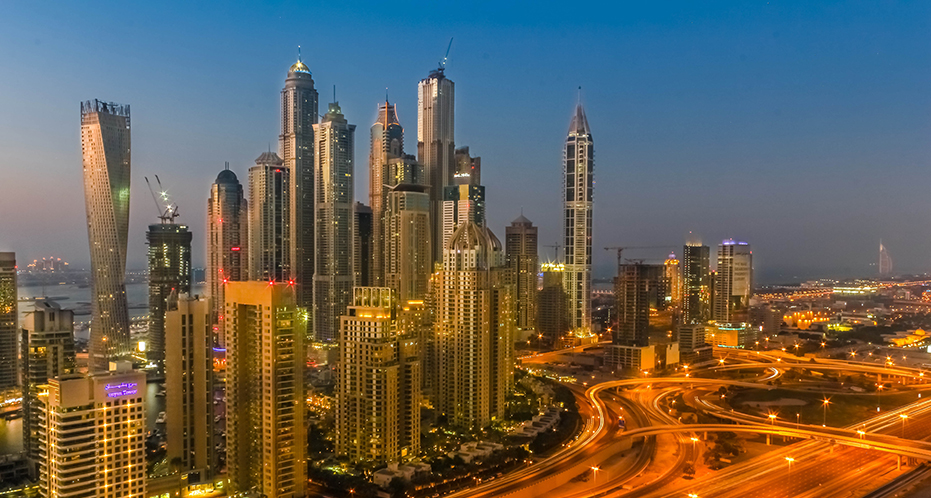Driving commercial and political engagement between Asia, the Middle East and Europe
Driving commercial and political engagement between Asia, the Middle East and Europe
Driving commercial and political engagement between Asia, the Middle East and Europe

Baroness Fairhead
UK Minister for Trade and Export Promotion
 Last year, the Department for International Trade launched the UK government’s ambitious new Export Strategy, which aims to increase the contribution of exports to UK GDP from 30 to 35 per cent.
Last year, the Department for International Trade launched the UK government’s ambitious new Export Strategy, which aims to increase the contribution of exports to UK GDP from 30 to 35 per cent.
While the strategy involves supporting UK companies to trade overseas – including the 400,000 businesses who we believe could be exporting but are not – it also relies on us identifying and building links with markets that we see as having major potential for UK trade. And among the most exciting of these are the six economies of the Gulf Cooperation Council (GCC).
In October last year, the International Monetary Fund (IMF) revised its 2019 forecast for GCC growth upwards, to 3 per cent. This contrasted with the global outlook, which predicted a slowdown in economic growth this year.
A key factor in the IMF’s revision was increased public spending as GCC economies diversify away from oil and gas exports. Across the region we are seeing efforts to develop new sectors and attract investment, and it is here that the UK sees the biggest opportunities.
The shifts towards digital technologies as GCC economies diversify present huge opportunities to the UK, because these are precisely the areas where we have considerable expertise and capacity.
Smart cities are a good example. Across the Middle East we are seeing new urban developments being planned which harness Internet of Things (IoT) technology to increase efficiencies across public services. Abu Dhabi, for example, launched its five-year Zayed Smart City Project in 2018; Saudi Arabia is building a smart city from scratch as part of its NEOM project; and Qatar is developing Lusail into a high-tech urban hub.
Given that the wider MEA region is undergoing rapid urbanisation – the population living in cities more than doubled between 1960 and 2015 – smart cities will be crucial to the Middle East’s future prosperity, creating efficiencies to support growing populations while managing limited local resources more effectively.
Smart cities are built on innovative sectors and technologies such as artificial intelligence and machine learning, FinTech, digital infrastructure, autonomous vehicles and clean energy. The UK has world-leading expertise in each of these areas.
The UK is at the vanguard of healthcare and education, making us ideal partners for GCC economies looking to build momentum in these fields. In fact, the Government has recently launched its International Education Strategy, which sets out an ambition to grow the total number of international students during the year to 600,000 and generate £35 billion through education exports by 2030. The UK’s education system is world leading, and we’re committed to further developing our offering across the globe, including in the GCC.
The UK, then, is a perfect partner to provide the tools to face the economic and social challenges of the 21st century, and smart cities certainly sit at the heart of tackling future issues. We are working hard to help businesses build the connections that will enable this relationship to prosper.
We have already made considerable progress. The UAE is the UK’s fourth largest goods export market outside Europe according to the latest figures, coming after the USA, China and Hong Kong, and bilateral trade is now growing in double digits.
In terms of investment, we are the biggest foreign direct investor today in the UAE, and we have 6,000 UK companies operating there.
Trade and investment travels both ways, of course, and we have seen very encouraging trends in terms of GCC investment in the UK as well. There has been increasing investment from the Emirates into a range of UK sectors, from real estate to wind power. This is a trend we hope will continue.
In the year to September 2018 the wider Gulf region accounted for £39 billion worth of UK trade. When you consider that just 10 per cent of UK companies are currently exporting, the potential is clear to see.
As Minister for Trade and Export Promotion, it is my job to help those companies to start trading overseas through the successful execution of our Export Strategy. There remain a vast number of untapped opportunities to expand and deepen our trading relationship. I’d encourage any and all businesses interested in learning more about opportunities in the region to get in touch with our International Trade Advisors located across the UK. Our teams stand ready to provide practical advice on how to break into the market and assist with introductions to potential trading partners in the GCC.
As the GCC diversifies and embraces the sectors where the UK leads the world, its importance to our strategy, and to UK companies, will only increase.
